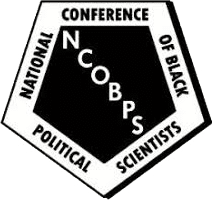The National Conference of Black Political Scientists (NCOBPS) condemns the police and vigilante killings of George Floyd, Breonna Taylor, Ahmaud Arbery, David McAtee, Tony McDade, Dreasjon Reed, James Scurlock, and countless others. State officials have dishonored their memory, doing their utmost to signal that even in death they are under suspicion and not deserving of our unconditional love. Those who grieve them and call for accountability and justice in their names have been beaten, mocked, shot at, driven over, and killed. These murders are another reminder of how white supremacy, state killings, and punitive policies continue to harm Black, Brown, and Native communities.
We have witnessed Black elected officials pepper sprayed and Black journalists arrested on camera. We have witnessed the president encouraging gun violence in the face of mass demonstrations. The president is not only encouraging gun violence, he is doing so using the language of segregationists while also demonizing his political opponents for standing up to the systematic devaluing of (if not attack on) Black bodies.
The events this past month raise another concern about social distancing in the COVID-19 era. Black people as well as other people of color disproportionately live in crowded spaces and are employed in “essential” work economies where it is impossible to socially distance. Yet still, it appears that communities of color are selectively targeted by law enforcement officials for violating social distancing policies. For example, 304 of the 375 people given citations for violating New York City’s social distancing policy from mid-March to early May were Black or Latino. Racial disparities in the COVID-19 era are inextricably tied to the multi-generational distrust, pain, and frustration expressed in the recent protests against state violence.
The March 28th data sharing guidelines issued by the Office of Civil Rights (OCR) at the Department of Health and Human Services presents another problem. The guidelines allow health departments to give first responders, including police departments and sheriffs, the addresses of people testing COVID-19 positive without their permission. With Blacks disproportionately contracting the coronavirus, the guidelines raise serious concerns about surveillance and selective enforcement. As scholars and scholar-activists, NCOBPS remains steadfast in our commitment to challenging injustices. We stand in solidarity with communities of struggle seeking an end to state violence. We also stand in solidarity with civil rights groups and health advocates seeking equity-based solutions in the COVID-19 era.
Sekou Franklin, President
Tiffany Willoughby-Herard, Vice-President
Kathie Stromile Golden, Executive Director
ncobps2019@gmail.com, @NCOBPSTweets
